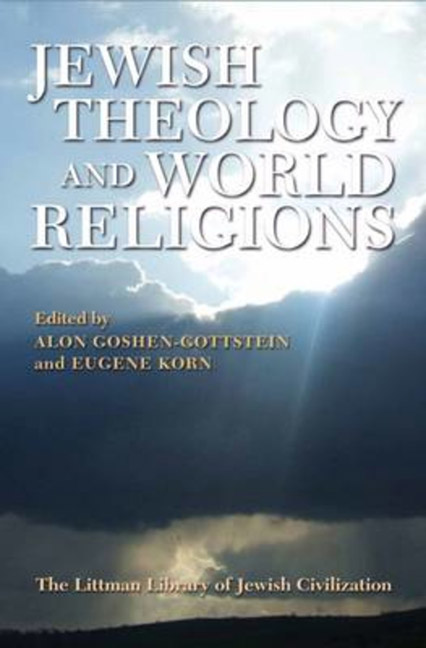Book contents
- Frontmatter
- Dedication
- Preface
- Contents
- Note on Transliteration
- Towards a Jewish Theology of World Religions: Framing the Issues
- PART I PHILOSOPHICAL PERSPECTIVES ON JEWISH PLURALISM
- PART II JUDAISM AND THE OTHER
- 5 Can Another Religion Be Seen as the Other?
- 6 The Violence of the Neutral in Interfaith Relations
- 7 Jewish Liturgical Memory and the Non-Jew: Past Realities and Future Possibilities
- PART III JUDAISM AND WORLD RELIGIONS
- Concluding Reflections
- Notes on the Contributors
- Index
7 - Jewish Liturgical Memory and the Non-Jew: Past Realities and Future Possibilities
from PART II - JUDAISM AND THE OTHER
- Frontmatter
- Dedication
- Preface
- Contents
- Note on Transliteration
- Towards a Jewish Theology of World Religions: Framing the Issues
- PART I PHILOSOPHICAL PERSPECTIVES ON JEWISH PLURALISM
- PART II JUDAISM AND THE OTHER
- 5 Can Another Religion Be Seen as the Other?
- 6 The Violence of the Neutral in Interfaith Relations
- 7 Jewish Liturgical Memory and the Non-Jew: Past Realities and Future Possibilities
- PART III JUDAISM AND WORLD RELIGIONS
- Concluding Reflections
- Notes on the Contributors
- Index
Summary
LITURGY and ritual serve not only as human vehicles for offering worship to the divine, but also as ways to transmit and shape a human community's understanding of its place in the world. For Jews, this community has historically been the ‘people of Israel’, a specific nation among nations in the world. This nation has a particular covenantal relationship with God, one that it understands to be different from other nations’ relationships either with this God or with other (perhaps false) gods. Jewish rituals reflect on this boundary and reinforce it, constructing theological interpretations of history that shape Jews’ self-understandings and their relationships to these religio-political Others. Jews today are heirs to this theology in their participation in received rituals; however, they also have opportunities to be shapers of this theology, particularly when they construct rituals that reflect on the traumas and transitions of the twentieth century. This essay addresses this opportunity within the parameters of the traditional, halakhic Jewish world; it does not consider the almost limitless possibilities offered within the liberal forms of Judaism.
At the heart of this issue is the question of how Jews construct their ritual memory of the Other. My formulation of this question derives from a challenge encountered in the study of Christian liturgy, where anamnesis (remembering by re-experiencing; in this case, usually, the Last Supper) is a central element of ritual. If this is a characteristic of human ritual expression, it should also find expression in Judaism. If not, some alternative theoretical structure is needed. Having established a theoretical framework, we will turn to an analysis of how received Jewish liturgy ‘remembers’ the Other. This in turn will allow us to consider how new rituals do or ought to construct memories that concern the religious Other, most importantly with regard to the Holocaust.
MEMORY
Anthropological theories of ritual, developed mostly by scholars whose personal cultural origins lie in Christian society, and theories of liturgy, developed more explicitly with Christian liturgy at the centre, understand construction of memory to be a primary function of human ritual activity. Leading Christian scholars theorize that the Christian concepts of liturgical memory derive from Christianity's Jewish rather than its Greek roots. However, these theoretical constructs apply rather poorly to rabbinic liturgy and are helpful neither for explaining most of what we have received nor as guidance for constructing new responses.
- Type
- Chapter
- Information
- Jewish Theology and World Religions , pp. 167 - 186Publisher: Liverpool University PressPrint publication year: 2012



